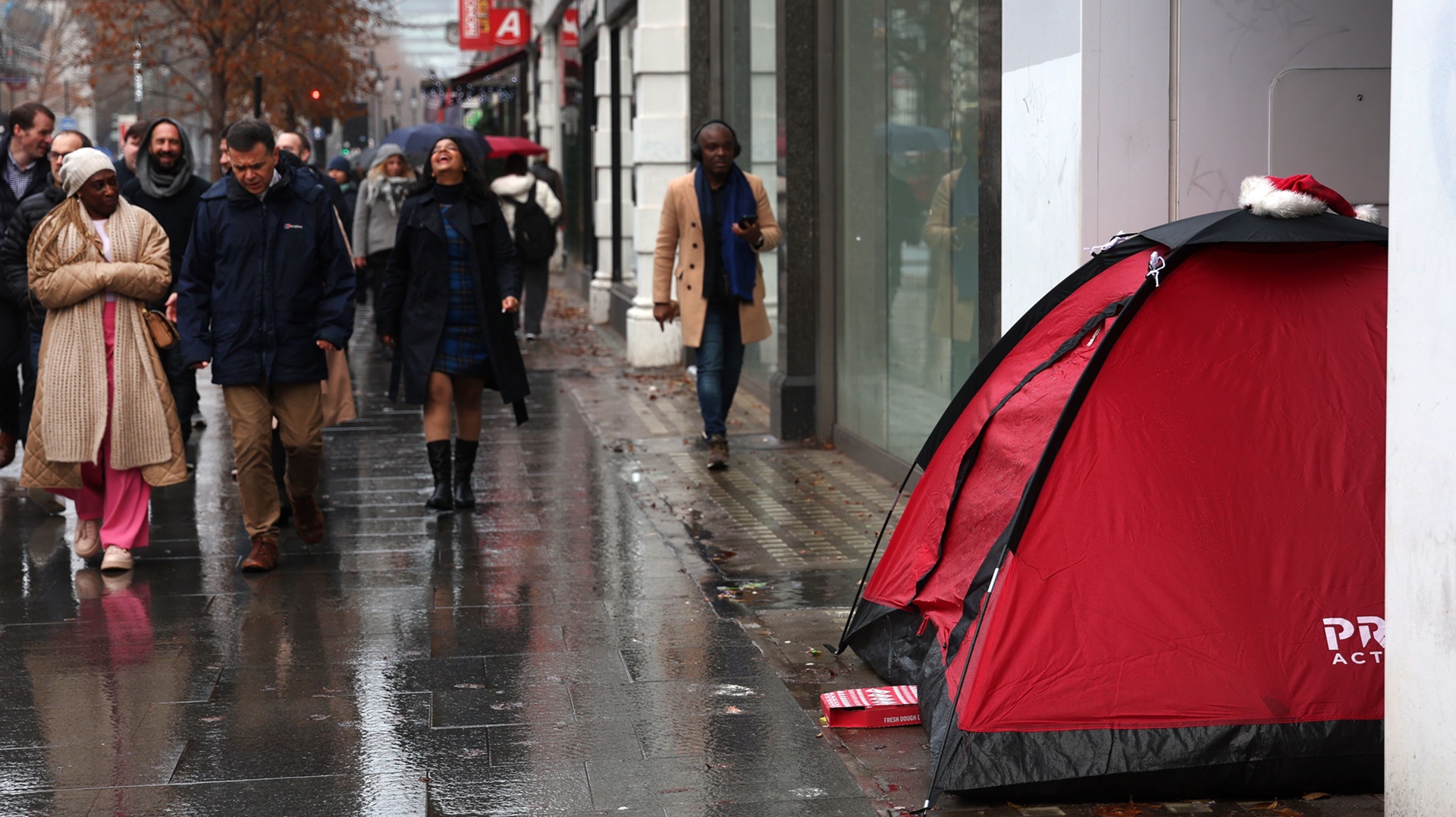We know that many of them end up street homeless as a result because we receive dozens of calls from young people on our helpline every week in that exact position. One young person called us after fleeing domestic violence, spending the night in a tent on a beach and woke up to call their council the next day, only to be told that they could not be helped.
We know that local authority resources have been stretched to capacity for over a decade. They clearly cannot cope with the number of people facing homelessness and, with limited resources, have little choice but to triage cases to support those where need is perceived to be the greatest.
In practice, this means ignoring their statutory duties and, in some cases, a systemic prejudice against homeless young people that could even put lives at risk, particularly as the cold weather begins to bite.
It doesn’t have to be like this.
Just under four years ago, meaningful support from national government led to almost all rough sleepers being brought inside and kept safe from the pandemic, the cold and almost everything else street homelessness can throw at them.
Everyone In was not a silver bullet – it was, after all, coupled with an eviction ban and an increased rate of universal credit which helped temper demand on homelessness services more generally – but it revealed a crucial truth.
Advertising helps fund Big Issue’s mission to end poverty
Rough sleeping can be ended, if the government wills it.
And what greater imperative to do so can there be than a Met Office warning for Storm Pia? This week’s “danger to life” warning focuses on high winds and rain, with pictures of battered coastal towns dominating the news, before a blanket of snow hits towards the end of the month.
The terrible weather will be hard to escape wherever you are – but simply impossible if you have nowhere to call home.
As temperatures drop, the Severe Weather Emergency Protocol (SWEP) will be activated in many places and life-saving volunteers, charities and councils will spring into action. At least that’s the theory. Last year, as early December brought weeks of snow and frost, our Helpline found more than one local authority not holding up their end of the bargain, the snow stretching them beyond capacity and forcing them to turn people away.
This year, according to the Centrepoint partner charities surveyed, demand will be higher still. Some have already been forced to close or reduce services, all of them already doing all they can to keep going.
It’s in this context that the progress of the government’s pledge to end rough sleeping by next year must be judged. In the last twelve months a slew of piecemeal funding announcements and data has been released as ministers seek to get a grip of a commitment that has not so much stalled as careened in the opposite direction.
Advertising helps fund Big Issue’s mission to end poverty
Now, with more investment and a commitment to a cross-government strategy, ministers finally have something like the tools they need. But the fact remains they have a plug to prevent rough sleeping but can’t reach the tap to prevent the homelessness that often precedes it.
Hundreds, if not thousands, more will be forced to sleep rough before the government’s deadline for ending it passes – many of them young and vulnerable and without any real hope of accessing support.
This is a bleak winter warning and the risk it poses to the lives of those on the streets cannot be underestimated.
However, though extreme weather focuses public attention on those most exposed to the elements, homelessness and rough sleeping are year-round problems that don’t disappear once the sun comes out.
It’s time all of us – politicians and the public – faced up to that. If we do, perhaps the need for tents, sleeping bags and survival kits will have passed and those forced to sleep rough will regain their dignity and safety.
Alicia Walker is the head of policy, research and campaigns at youth homelessness charity Centrepoint.
Advertising helps fund Big Issue’s mission to end poverty
Do you have a story to tell or opinions to share about this? We want to hear from you. Get in touch and tell us more.









